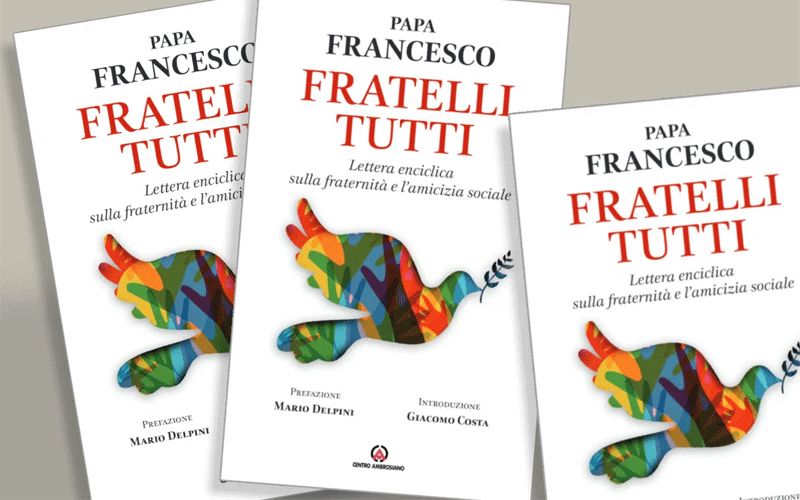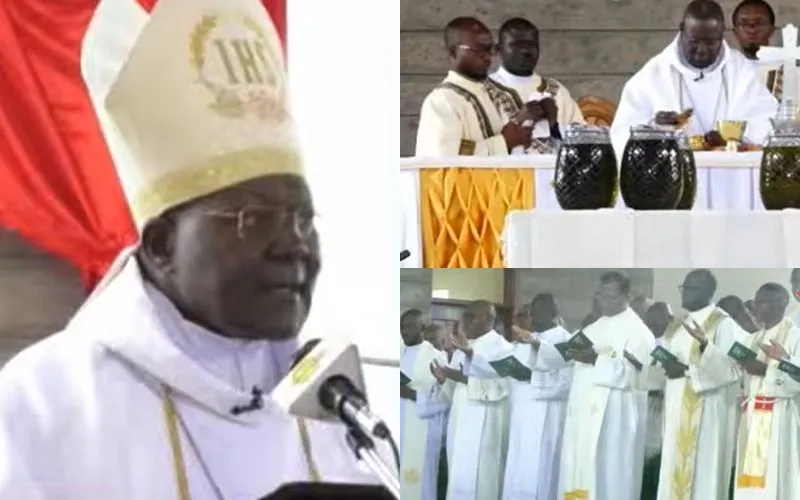Unfortunately, according to Fr. Orobator who spoke at the two-hour webinar, politics in Africa only serve the interests of a few individuals while placing a majority on the fringes of society.
“Politics serves the needs of the elite group and excludes the poor and the vulnerable,” Fr. Orobator said, and added, “In fact, it distorts the very word ‘people’ which is supposed to elicit the idea of Ubuntu in the African context.”
The Jesuit Theologian further said that Catholics serving in positions of power in politics have fallen short of Pope Francis’ description of politics as a vocation of charity and urged them to either mend their ways or to resign to avoid giving the Church a bad name.
“We need new models of politics not just in the Global South but on the whole group, because we are all one; politics with a heart, healthy politics as Pope Francis proposes, offering us something new, something that has not been tested but one that is workable,” the Nigerian-born Jesuit Cleric said during the October 13 webinar session.
Other speakers included Ms. Noluthando Honono, a student activist who decried bureaucracies in African governments that she said hinder equal access to services.
(Story continues below)
Also speaking at the event was Dr. Teresia Wachira, a peace and security expert who reiterated Pope Francis' message that focus by governments to invest in nuclear weapons was denying the world resources that would have been put to better use.
“Investment in a single nuclear weapon can be used to manufacture 200 million vaccines to prevent a disease in a particular country. We need to start rethinking on how to better invest our resources,” said Dr. Wachira.
The security expert’s sentiment was echoed by Fr. Zampini from the Vatican office who decried the misplaced priorities by countries that he said were busy investing in nuclear weapons when the rest of the world was fighting the COVID-19 pandemic.
“There is no way that we can justify the possession of nuclear weapons,” Fr. Zampini said, and added, “I find it especially baffling that most powerful countries are investing in nuclear weapons today, during the pandemic, when the focus should be in creating an efficient public health system.”
In his opening remarks, Mr. Siddharth Chatterjee, the UN Resident Coordinator in Kenya said that Pope Francis’ Fratelli Tutti is “an opportunity for us to pause and to rethink our development models.”
Giving the example of Kenya’s approach to the Sustainable Development Goals (SDGs), the UN expert encouraged the East African country to remain enthusiastic in the efforts to achieve the goals.
“Kenya was a leader in the SDGs, convening the rest of the world in 2013 to ensure that the SDGs happened. It is important to note that today, we have a lot of unfinished business on the list of the development goals,” he said.
In one of the final sections of Fratelli Tutti, Pope Francis explains that the role of religion is to be at the service of fraternity in our world.
The Holy Father observes that terrorism is erroneous interpretations of religious texts. He then speaks about the possibility of peace among religions, which he sees as necessary means to guarantee religious freedom.
Reiterating Pope Francis' call to embrace religious inclusion, the Secretary General of the Symposium of Episcopal Conferences of Africa and Madagascar (SECAM), Fr. Henry Akaabiam said that interreligious dialogue, aimed at ensuring that people of different religions live together as brothers and sisters, will be attainable when people are moved to realize that they are neighbors.
“We need to realize that we are all children of one father, whether Christians or not,” Fr. Henry said.
The Nigerian-born Ghana-based Cleric added, “We need to engage with each other as pilgrims on a journey to meet God and to see all things the way God sees them. God sees everything through the heart.”
Agnes Aineah is a Kenyan journalist with a background in digital and newspaper reporting. She holds a Master of Arts in Digital Journalism from the Aga Khan University, Graduate School of Media and Communications and a Bachelor's Degree in Linguistics, Media and Communications from Kenya's Moi University. Agnes currently serves as a journalist for ACI Africa.








